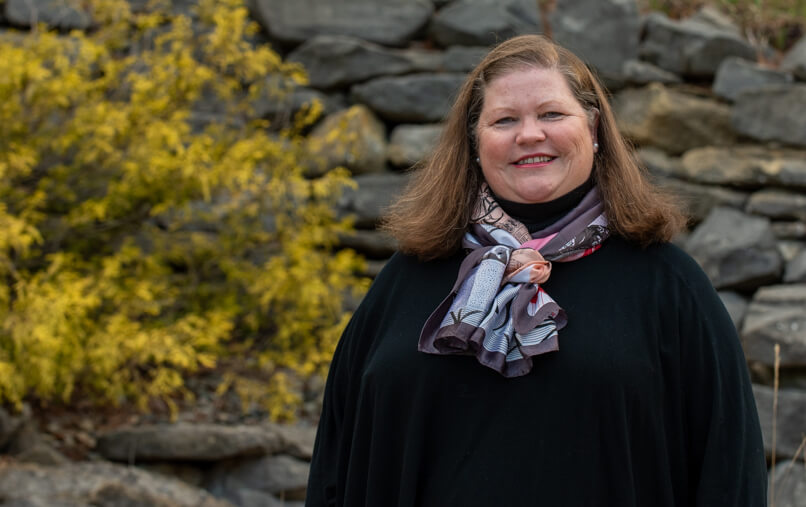May 8, 2020
Murphy Award winner: Jill Newton

Jill Newton, associate professor of mathematics education. (Photo provided)
Teaching and mentoring go hand in hand for Jill Newton, associate professor of mathematics education and a 2020 recipient of the Murphy Award.
Since 2008, she has done both through courses, study abroad, research, and her involvement with student groups (e.g., Purdue Students for Africa) and learning communities for mathematics education and Tanzania.
“I find these experiences extremely rewarding because I am frequently inspired by my students’ commitment to their work and to others,” she says. “I see this with the future math teachers as they reflect on how to serve all learners in their classrooms, and with students who travel to Tanzania with me as they write service grants and build relationships with the staff, students and teachers there.”
Newton exudes a passion for service and social justice, something she instills in others. Her education classes, for example, explore ways to expand access to mathematics. They investigate strategies such as Universal Design for Learning in which students can use multiple means of engagement, representation and expression to both learn and demonstrate their learning of mathematics.
“Math is much more than being able to do your times tables quickly,” she says. “The question is, how do we broaden the idea of math so more people are included in what it means to be a mathematician? And how do we encourage those who are underrepresented — be it people of color or women — to see themselves as mathematicians?”
Beyond the classroom, her students conduct action research seeking enhancements to their math teaching. Participation in her study abroad exposes students to issues of social justice linked to, for example, resource distribution and the related sociopolitical conditions that benefit some citizens at the expense of others.
Over the past 10 years, more than 200 students have participated in Newton’s Tanzania study program, providing them opportunities in a different culture. “We’re together 24/7 and get to experience adventures, adversity and amazing relationships with the staff, teachers and students there. It’s a whole different way of learning,” she says.
Newton has also enjoyed watching her connections with students come full circle. Some of the math education graduates now serve as mentor teachers for current Purdue student teachers, and many alumni from the Tanzania program participate in and contribute to service projects like the RunWild 5K held each spring. “These relationships give me joy and remind me how lucky I am to work with such outstanding students at Purdue University,” she says.
Now, like her fellow faculty members, Newton has implemented remote learning amid the COVID-19 pandemic.
“I’m trying to keep it simple. Right now, we need a connection with people, so I’m not requiring synchronous meetings. I’m teaching asynchronously and trying to be available as much as I can,” she says. “I also am teaming up students with partners so they have opportunities to communicate with at least one other person each week to do some activity together.”
Newton meets with students virtually, which includes scheduling online discussions. “Anybody who wants to come in and chat can do so. I think students need to feel like they’re not on their own, so I try to connect, making sure they know I’m available if they need anything.”
Even with the challenges posed by virtual learning, Newton’s passion for teaching persists.
“I love working in academia and all the different things I get to do,” she says. “Many of the undergraduate students in my life are thoughtful, empathetic and curious, but also adventurous, fun and able to see the best in situations. I’m grateful for the opportunities I have had to get to know them and learn with them.”
Writer: Matt Schnepf, mschnepf@purdue.edu

